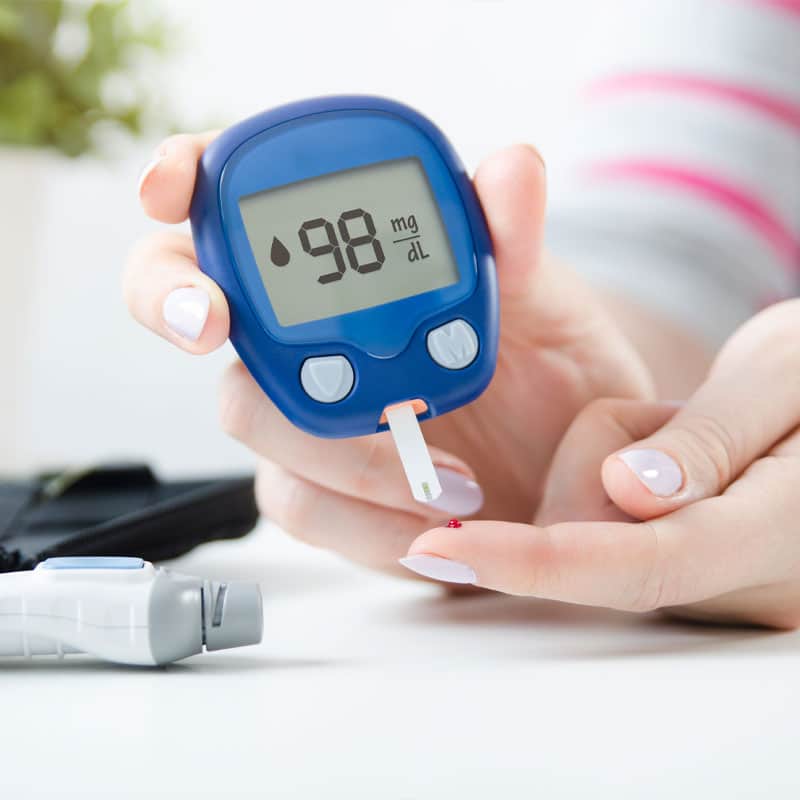Your thyroid gland is a part of the endocrine system and is responsible for producing several hormones that help manage energy levels, metabolism, and much more. When the thyroid is healthy and working correctly, the systems in your body work together seamlessly. Exposure to toxins can cause the thyroid to malfunction and cause several health issues. Let’s read here about six toxins that are endocrine disruptors and harm your thyroid.

Endocrine Disruptors
Toxins are everywhere, including food, water, household products, and personal care items. Although it is almost impossible to eliminate all exposure to toxins, you can limit your exposure to them, thus minimizing the risk of experiencing health issues. For example, you should use an iodine supplement and limit exposure to six toxins that affect your thyroid and are endocrine disruptors.
Heavy Metals
Most people have heard about the dangers of lead; however, numerous other heavy metals, including aluminum, cadmium, lead, and mercury, can negatively impact the thyroid gland.
- In the past, paint and gasoline contained lead.
- Cheap jewelry and children’s toys can contain lead.
- Cadmium is found in plastics, certain fertilizers, pigments, sewage, and batteries.
- Aluminum and mercury disrupt iodine uptake.
- Mercury can be found in dental fillings and seafood.
- Aluminum is used in cookware, vaccines, deodorants, antacids, and certain food additives.
Thus, we are constantly exposed to heavy metals daily.
Herbicides and Pesticides
Industrial farming uses herbicides and pesticides, which are difficult to avoid. One way to reduce the risk of consuming foods containing pesticides and herbicides is to choose organic foods. Unfortunately, because of runoff, herbicides and pesticides can enter our water supply.
Herbicides and pesticides reduce the thyroid’s ability to use iodine, increasing the risk of Hypothyroidism. Pesticides can disrupt thyroid function by interfering with thyroid hormone production and displacing thyroid hormones from proteins. Your risk of developing thyroid issues increases with more exposure to herbicides and pesticides.
Flame Retardants
Chemicals that reduce the flammability of fabrics, clothing, furniture, and carpeting can cause thyroid dysregulation. Flame retardants contain bromine (a halogen), which mimics thyroid hormone and is transported in the blood, competing to attach to thyroid hormone receptors. Bromine, the chemical found in flame retardants, can also be found in pool cleaners, pasta, drinks, and everything else.
BPA
BPA is an industrial chemical used to manufacture plastics and epoxy resins. It is also found in food storage and beverage containers, epoxy used to line metal food cans, water supply lines, bottle caps, and specific dental composites and sealants.
BPA exposure can cause a plethora of health problems. In addition to damaging the thyroid gland, BPA exposure can cause cardiovascular problems (hypertension, heart attack, peripheral artery disease, and coronary artery disease), reproductive disorders (infertility, libido, and impotence), and an increased risk of breast and prostate cancer. In addition to this, BPA can increase the risk of type 2 diabetes, weight gain, and an increased risk of asthma and wheezing.
Fluoride
Many people are surprised to learn that fluoride can disrupt the thyroid gland. Although fluoride is added to water to prevent cavities, it can damage your thyroid health. Research has shown that consuming as little as two to five milligrams of fluoride over a few months can lower thyroid function. Unfortunately, that is about how much fluoride you drink in fluoridated water daily. Therefore, drinking fluoridated water could lower your thyroid function.
PFCs
PFCs (perfluorinated chemicals) disrupt thyroid function, especially in women. They are used to manufacture several items, including takeout containers, pizza boxes, and mattresses. PFCs are an endocrine disruptor that takes the body a long time to break down. Although the use of PFCs is reducing in the United States, an imported product could still contain them.

Toxicity Questionnaire
The 5-minute Toxicity Screening Questionnaire helps identify symptoms and detect underlying causes of illnesses.
Click Here for the Toxicity Questionnaire

Reduce Your Exposure to Toxins
Although avoiding all toxins is practically impossible, the following tips can help minimize exposure. As you reduce toxin exposure, your thyroid will begin functioning better. Follow these tips to reduce exposure and improve your thyroid health.
- Avoid using herbicides and pesticides in your home and yard
- Choose organic foods when possible
- Detoxify the body using a proven detoxification program
- Increase iodine and selenium intake
- Limit plastic usage
- Avoid using nonstick cookware
- Avoid using antibacterial products
- Use a water filter for your drinking and bathwater
To help protect your health and improve your well-being, you must ensure your thyroid is as healthy as possible. Eat a well-rounded diet of organic fruits and vegetables and opt for filtered, purified water.
It is advisable to consult with your thyroid specialist to help reduce toxin exposure and detoxify your body.





















